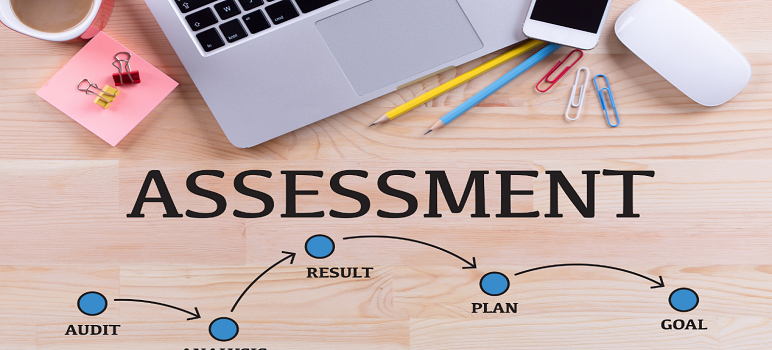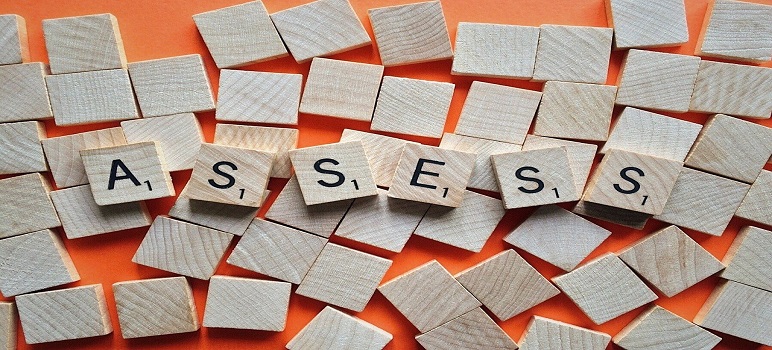
A wise professional must know how to do self-assessment for career progress. Meanwhile, having the ability to analyze oneself is just as critical as receiving criticism from external sources.
What is a self-evaluation & Definition of self-assessment
Self-evaluation is a form of introspection. We perform it to research and learn about our own qualities; so, it is a self-discovery activity.
When a person examines himself, he becomes aware of both his strengths and weaknesses. It is critical to distinguish them, as the first aids in our growth and advancement, while the second identifies areas for attention and improvement.
Although it is a critical tool, many overlook it since confronting oneself may be difficult at times. We do not always want to step outside our comfort zone or become conscious of our limiting beliefs, since this requires us to take activities we have been putting off for a long period of time.
At first, it may appear challenging, because viewing yourself objectively demands self-awareness.
Additionally, it is vital to have a healthy dosage of understanding in order to avoid being overly critical and detracting from your desire.
However, if you see that this is an intriguing route that opens up opportunities for professional and personal growth, it becomes simpler to conduct the self-assessment.
At the end of the day, it enables you to identify areas for improvement and opportunities for growth, while also gaining a grasp of your allies’ strengths and weaknesses.
It develops into a necessary habit with practice.
Here are 5 valuable tips to teach you how to do self-assessment

Creating an atmosphere required for self-assessment
Before proceeding on how to do self assessment, it is vital to recognize that this is a time for self-awareness. It is critical to have sufficient time to complete the task without interruption. The location chosen should be comfortable and peaceful, fostering a sense of serenity and continuity.
Self-assessment is an introspective exercise, a chance to reflect on oneself. To do so, it is critical to understand your origins and goals, as well as the possibilities and choices available along the way. With this in mind, establishing the stages of that exercise will be lot easier.
1. Determine the periodicity of self-assessment
Planning is critical while doing a self-assessment. Considering your career plan, you can see that your professional path is divided into stages and that you are now in one of them.
Determining the frequency with which to do this assessment is a necessary step in the process.
It might be conducted biweekly, monthly, or over a longer or shorter period of time. Everything will be determined by the specified goals and accomplishments, constantly taking into account your ability and pace.
2. Make a list of your strengths and weaknesses
Here, you must be completely true with yourself. It is not a simple task at first, especially if you have difficulties looking in the mirror and recognizing your flaws, or if you are too critical to appreciate your accomplishments.
In any case, deceiving yourself will not get you anywhere. If you have the courage to answer these questions honestly and include your pros and cons, your triumphs and failures will automatically surface.
In any case, be cautious! We recommend that you approach this without being too judgmental, since this will give you a more accurate picture of the problem. Additionally, you will be able to identify areas that want improvement and which features may be utilized constructively.
In reality, strengths and weaknesses must be viewed collaboratively.
3. Describe how you weigh your strengths
After establishing your primary strengths, it’s critical to consider how they’re presented. Consider how your good attributes manifest themselves in your work environment, professional connections, and interactions with coworkers. Which instances made you feel most at ease, in which they complimented your work or expressed enthusiasm for your actions.
You may take it a step further and consider additional abilities acquired outside of the office that might enhance your career trajectory. Consider an alternative perspective on a pastime or other activity that you excel at and how it may emerge professionally.
Additionally, consider your most outstanding personal characteristic. Consider what makes you unique, how that feature stands out, and how this should be used to your advantage both professionally and personally.
4. Work on your strengths on a daily basis

By recognizing your strengths and areas of excellence, you may use them to boost your performance at work and also apply them to other aspects of your professional life.
Consider the options, identifying methods to incorporate your talents into goal planning until the next self-assessment. Make an attempt to build additional definite and small acts that will demonstrate your characteristics.
Additionally, pay attention to your interactions with coworkers and other individuals. What can you contribute that will be meaningful to the group as a whole?
5. Recognize your flaws
Make a list of your weak spots, keeping in mind the primary obstacles or difficulties they give you in your daily life.
Personal or technical factors must be considered, which may be an impediment to expression or relationship development, or even a lack of understanding about a certain issue.
Consider instances when you found yourself lacking and felt uncertain or disheartened. Additionally, consider an action or behavior that may be construed as bad and that you can change.
Recognizing our flaws does not always imply dismissing or discouraging them. In fact, it is quite the contrary! Only by identifying the weaknesses that impede performance can they be changed.
Conduct your own self-evaluation
A successful self-evaluation helps you to comprehend who you are by assessing your own traits, whether positive or negative, in a way that promotes your progress.
This is a highly effective method that will assist you in developing into the professional you desire.
Logic dictates that as you get a deeper understanding on how to do self-assessment, you will be able to make far more competent judgments and make the best use of your strengths and capabilities.
When people observe inspiring attitudes around them, they get more thrilled, which may convert the work environment into a lot more constructive and well-being.
Also Read:
How to be motivational in 7 incredible ways!